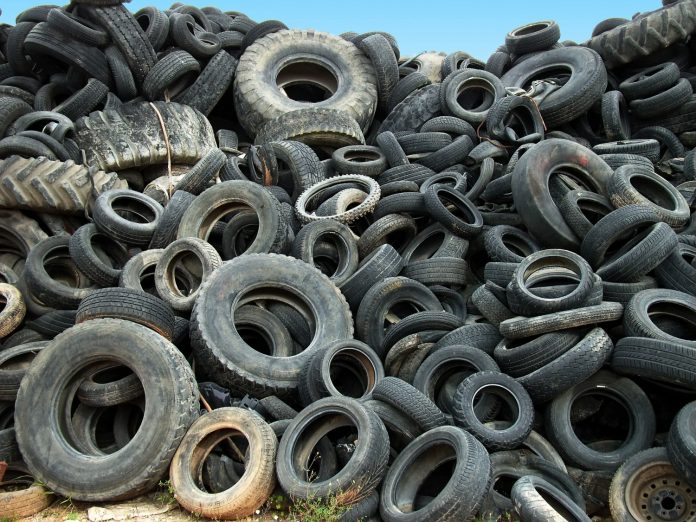ISLAMABAD: Tyre manufacturers fear that they may be on the precipice of industry wide closures due to the fallout of demand destruction and non-production days across the automotive industry.
Pak Suzuki Motor Company and Toyota Indus Motor Company, the two largest automotive manufacturers in Pakistan by volume, have started 2023 with multiple weeks of non-production days (NPD).
Suzuki has observed plant shutdowns from January 2 to January 6, from January 9 to January 13, from January 16 to January 20, It will also observe another spell of NPDs from February 13 to February 17. The company has cited lacking inventory levels in storage as the primary reason for its decision.
Toyota, similarly, is currently observing NPDs from February 1 to February 14. Furthermore, it has decided to reduce its production shifts to a Single Shift basis from February 15 until further notice. Toyota has cited persisted supply chain issues arising from the instructions given to commercial banks by the State Bank in EPD Circular Letter No. 20 of 2022.
Industry-wide vehicular sales stood at 724,724 for 1HFY23. This is a 22% Year-on-Year (YoY) reduction from the 928,384 units sold in 1HFY22. Tyre manufacturers fear these sales figures could dip even further due to the confluence of the plant shutdowns, the various rounds of pricing increases across companies, and inflation touted to cross its January threshold of a nearly a five decade high.
Speaking to Profit, Hussain Kuli Khan, CEO General Tyres, highlighted a series of measures that the Government can take to avert the catastrophe that might unfold across the domestic tyre industry.
“Firstly, the Government should allow the opening of letters of credit (LCs) for raw materials, as most of the raw materials are imported. The Government would ultimately save forex as the local value addition is very high at around 40%,” states Khan.
“The second step would be to curb smuggling. This happens through the border from Torkham and Chaman from Afghanistan. The Afghan transit trade agreement needs to be revisited as it is being misused. Smuggled tyres account for over 50% of the tyres sold in the market. If this was done through regular channels then it would not only help the government raise tax revenue, but also help the local industry to compete and grow,” says Khan.
“The Afghan transit trade agreement needs to be revisited as it is being misused. The estimated total value of smuggled tyres is around Rs 300 billion which amounts to a loss of approximately Rs 50 billion to the national exchequer. The local tyre industry, in lieu of the growth of the auto sector in Pakistan, has invested heavily in increasing its production capacity to meet the rising demand of the market but the massive sale of smuggled tyres has put legal industry investment at risk,” Khan continues.
Finally, Khan tells Profit that “Though the FBR has improved enforcement by taking strict measures at the customs level, still a lot more effort is required. Also, it is necessary to check the stock in the markets and take action against sellers by confiscating the illegally imported tyres”.


























This is the time to explore Export markets. These companies are too reliant on the local big buyers which are facing a demand downturn. This is the time to see where can they export these tires to, and that would probably be Sub-Saharan Africa or Latin America. SE Asia is already flooded with market competitive tires from Indonesia who produces the raw material (rubber) for it as well.
Discover new Export markets now. These businesses rely excessively on the local mega-buyers, whose demand has recently slowed. It’s time to start thinking about where these tires can be exported, and it’s likely that places like Latin America and Sub-Saharan Africa will be good options. Indonesia, which also provides the raw material (rubber) for it, has swamped the market in Southeast Asia with competitive tires.
General tyre is a rent seeking corporation. if they had done some R&D to improve the quality of their tyres.There is enough demand in the country for new tyres. but this industry is solely reliant on new cars as they have a monopoly and users have no choice but to accept their inferior tyres. let capitalism work and let them go bankrupt. they can’t even compete with Chinese tyres.
GTR tyre are being used by big three Japan car manufacturers, i.e., Toyota, Honda and Suzuki along with KIA and Hyundai partly. These Japanies companies have very tough standard in testing and quality of tyres. Furthermore these tyres are being manufactured keeping in view the road conditions and local environment. Many people shift to expensive or substandard cheap imported/ sumuggled tyres and enhance the risk of their lives and vehicles. As a whole, we have inferior complexity that always undermine and underrate the localy manufcured goods against imported ones.
Sir, after a thorough comparison, I have concluded that GTR tyres are heavy in weight and also noisy due to the quality of raw rubber. I have switched to Kumjo Korean tyres whose construction of Plies is same but with 2KG lesser in weight which makes the ride less noisy and comfortable.
I agree that these tyres are meant for the all weather and all terrains present in Pakistan. Local manufacturers should offer a separate series of soft and comfortable tyres to the customers who are ready to pay extra for a better driving experience.